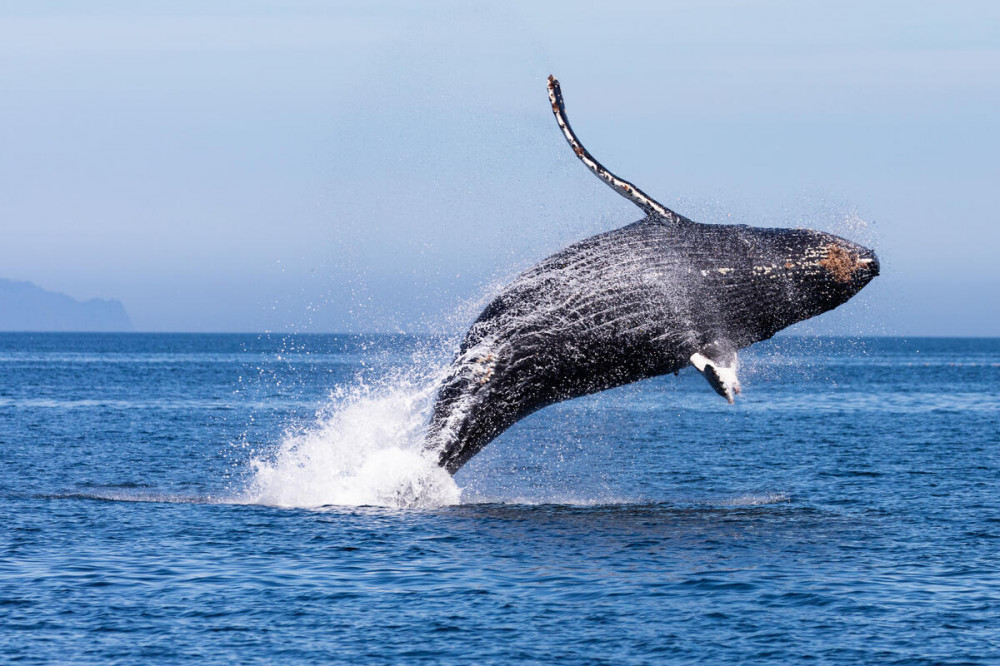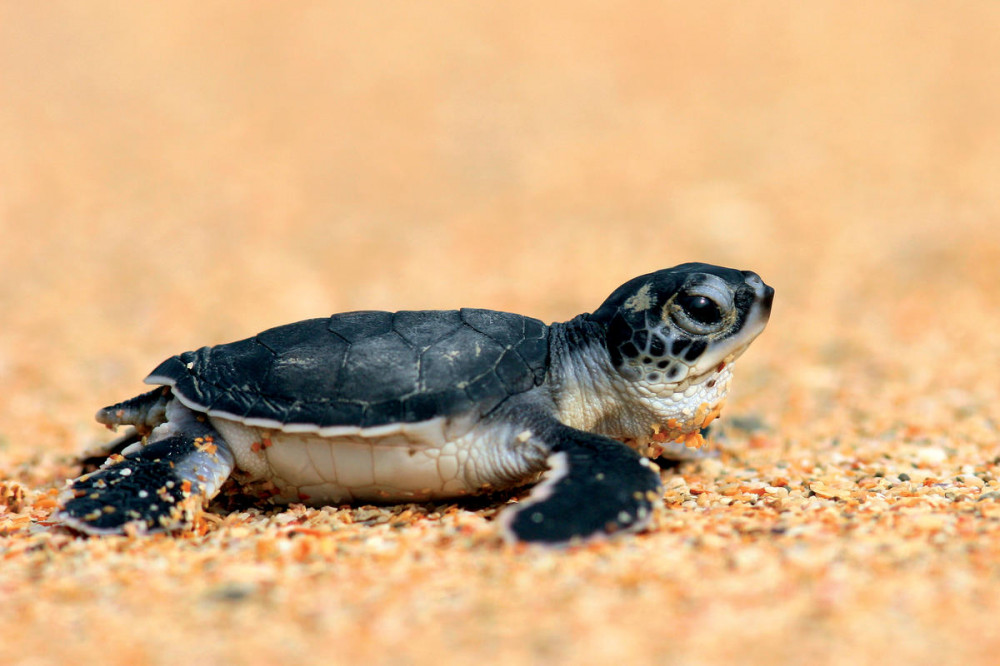Expanding these kinds of efforts around the world can also help save other endangered species that get caught in fishing nets and on lines, including vaquitas, right whales, Irrawaddy and franciscana dolphins, and harbour porpoises.
WWF is working with fisheries to reduce bycatch by promoting new technologies and gear for more efficient operations. Seafood, like swordfish steaks, labeled with the Marine Stewardship Council’s blue fish logo come from fisheries that are managed sustainably with minimal impact on wildlife.

Humpback whale (Megaptera novaeangliae) breaching off the coast of Kodiak Island, Alaska © WWF-US / Keith Arnold
Sea turtles population is also affected by food choices. They are some of the most majestic, long-living animals in the ocean, yet hundreds of thousands of them are accidentally caught and die in fishing nets and other gear each year. Fortunately, a growing number of shrimp and other seafood fisheries are using better equipment to reduce the incidental catch of sea turtles, dolphins, sharks, and other animals. Consumers can look for the Marine Stewardship Council logo on seafood at their grocery store fish counters, on packaged seafood, and on restaurant menus to ensure their food comes from fisheries that prioritize reducing bycatch.
WWF believes the MSC needs to commit to and accelerate key reforms so that it can maintain its reputation as the world’s leading fisheries standard and certification system. Here you can find the full WWF statement on the needed MSC reform.

Green Turtle, Astola Island, Pasni, Balochistan, Pakistan © WWF-Pakistan
Visit Good for you, good for the planet page


